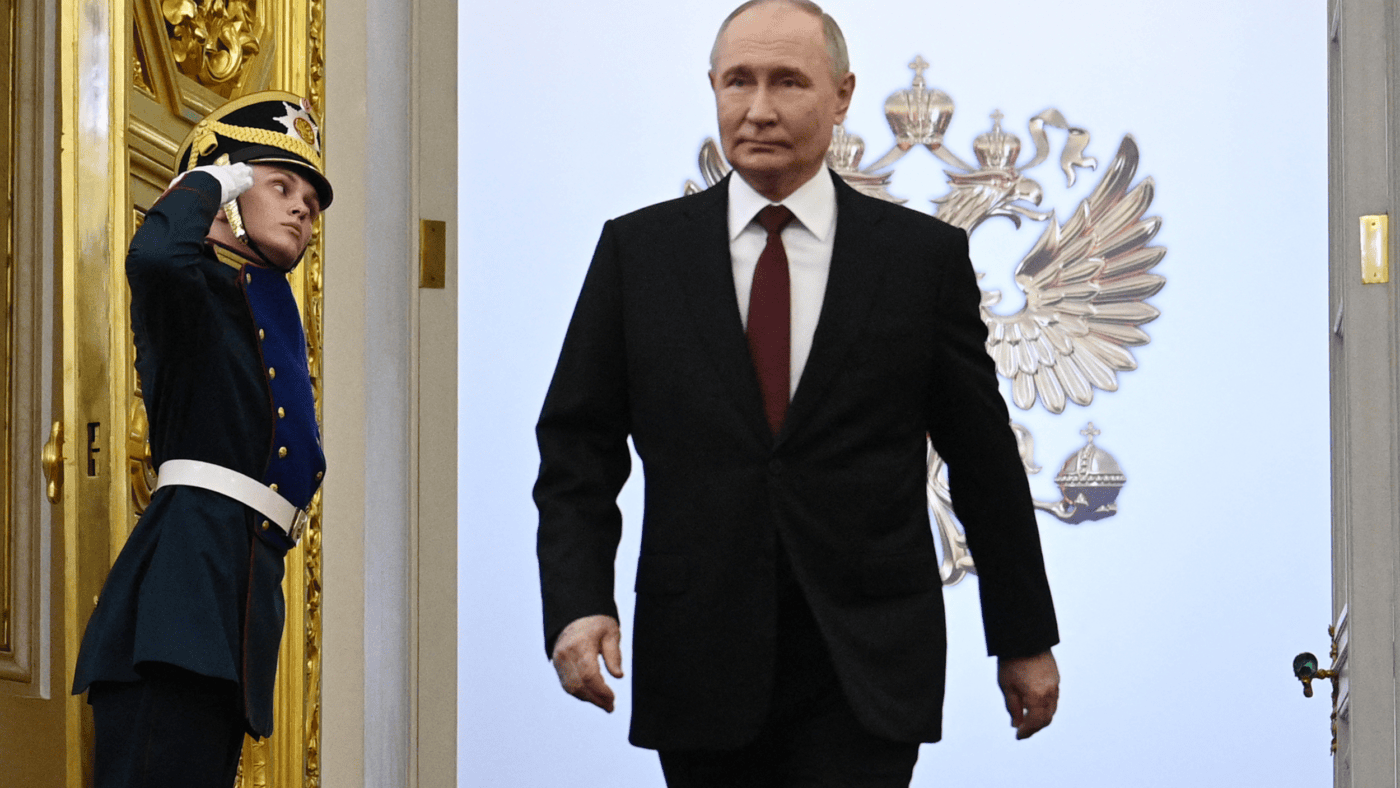This week, the Russian Ministry of Foreign Affairs announced that the impending delivery of General Dynamics F-16 Fighting Falcon aircraft to Ukraine was a ‘purposeful provocation’ by the West. As some models of F-16 are technically capable of carrying tactical nuclear weapons, Russia has warned darkly that their deployment would push the conflict to ‘the point where it will attain critical mass and explode’.
No one who isn’t a blind Kremlin partisan believes this to be a justifiable fear. First, Ukraine has no nuclear weapons, tactical or otherwise. Second, there has never been any suggestion of remote credibility that Nato member state might deploy any of their nuclear weapons to Ukraine. Third, the only party to the conflict which has raised the issue of nuclear escalation – on more than one occasion – is Russia.
This is, however, part of a relentless Russian narrative that it is the innocent, aggrieved party in the conflict with Ukraine and that it will, reluctantly, be forced to take measures of self-defence which may be severe. When the Foreign Fecretary, Lord Cameron, said last week that Ukraine was free to use UK-supplied Storm Shadow cruise missiles against targets in Russia, the grievance card was on the table again in seconds. This proved, Russia’s Foreign Ministry declared, that Britain was actively engaged in a ‘hybrid war’ against them.
On the face of it, this constant ticker tape of self-pity from the Kremlin is absurd and can be dismissed. After all, the timeline of the conflict in Ukraine is very clear: Russia invaded sovereign Ukrainian territory in Crimea in 2014, launched a full-scale invasion in 2022, and has pursued that war for more than two years in a way which uses war crimes as a standard tactic. Vladimir Putin’s objective is to end Ukraine’s status as a self-governing nation, and, effectively, as a nation at all, having explained repeatedly that he thinks the Ukrainian people are merely a subset of Russia.
This is not to say that Putin lacks useful idiots in the West. In February, he granted a two-hour interview to US television host Tucker Carlson which was essentially an extended explanation of the Russian president’s pseudo-historical world view, interspersed with softball and humbly admiring questions from Carlson. In Congress, Rep. Marjorie Taylor Greene of Georgia has been so obsessive and vitriolic in her opposition to military assistance for Ukraine that she has gained the nickname ‘Moscow Marjorie’. In the UK, our own reliable cheerleader for dictators, George Galloway, has long banged the drum for Putin and insisted that the ‘special military operation’ Russia is conducting is necessary to ‘demilitarise and de-Nazify Ukraine’.
The West needs to maintain a clear and robust line on Ukraine. We have supported and will continue to support President Volodymyr Zelenskyy because it is the right thing to do: he is the elected leader of a democratic state, and his larger, autocratic neighbour has attempted to annex the country. Ukraine may not be perfect, and there may be ongoing concerns about corruption and the political system, but its trajectory is clear. Nato was right to say explicitly at the Vilnius summit last July that ‘Ukraine’s future is in Nato’ and that an invitation of membership will be issued once the country has met various targets in democratic and security sector reforms.
The defence of Ukraine is not just the right thing to do, it is manifestly in the strategic interests of the West. There is a never-ending supply of commentators who argue that Ukraine is a long way away and that, especially for the United States, the future of a country of 35m people in Eastern Europe presents no obvious challenge.
There are two responses to this. Firstly, Ukraine is not so very far away if you are in Lithuania or Latvia or Estonia or Poland or Slovakia or Hungary or Romania, all Nato members which border Ukraine or Russia and have within living memory been subjected to occupation by Russia. For them, this is not a theoretical fight.
Secondly, if you think Ukraine’s continued resistance is a matter of indifference, try thinking instead what Ukraine’s defeat might entail. If Russia overruns Ukraine, seizes Kyiv, captures and deposes (or worse) Zelenskyy and his ministers and installs a puppet régime to bring Ukraine as closely into Russia’s orbit as Belarus, what lesson will Putin have learned? That force is ultimately the way to effect geopolitical change, and that the West, for all its fine talk, will not last the distance.
Our military and financial aid to Ukraine has to be matched by a loud, consistent and persuasive message, one which relies on nothing more than the facts. Russia began this conflict; Russia has been responsible for escalating the conflict at every stage; there is no ambiguity in the legal situation; and Russia could bring it to an end at one stroke, by retreating to pre-conflict borders. We have to call out Russian propaganda like the idea of F-16s being a nuclear threat, and let us do it with the disdain it deserves. The Kremlin’s narrative is that of a selfish child denied its desire, and we should treat it as such.
Click here to subscribe to our daily briefing – the best pieces from CapX and across the web.
CapX depends on the generosity of its readers. If you value what we do, please consider making a donation.


